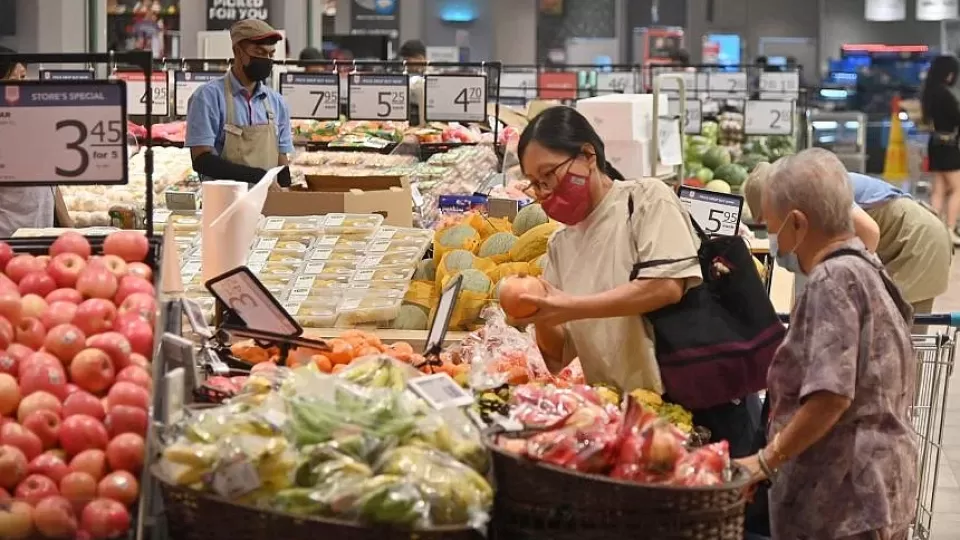January 17, 2023
SINGAPORE – Singaporeans believe that inflation is past its peak and on its way down over the next 12 months because of slowing economic growth and rising interest rates, a survey shows.
The headline inflation expectations for the year ahead dropped to 3.8 per cent in December from an 11-year high of 4.6 per cent in September, according to the latest quarterly results of the Singapore Index of Inflation Expectations (SInDEx) released on Monday.
Last month’s figure is still higher than the 3.2 per cent polled at the inception of the survey in 2011, said the SInDEx report, published jointly by DBS Bank and Singapore Management University (SMU).
But the SInDEx continues to lag behind the Monetary Authority of Singapore’s (MAS) 2023 forecast for headline inflation, which includes all items.
MAS believes headline inflation will average between 5.5 per cent and 6.5 per cent in 2023. The forecast takes into account all factors, including this year’s goods and services tax hike.
Excluding the transitory effects of the GST hike, MAS expects headline inflation to come in at 4.5 per cent to 5.5 per cent.
The decrease in inflation expectation coincides with global food commodity and energy prices coming off the peaks reached last year.
Singapore’s own headline inflation, or all-items inflation, peaked at 7.5 per cent in August.
The last monthly inflation report issued by MAS and the Ministry of Trade and Industry showed headline inflation in November at 6.7 per cent.
Professor Dave Fernandez, director of the Sim Kee Boon Institute for Financial Economics at SMU, said: “The decline in inflation expectations between the third and fourth quarters of last year finally aligns Singapore with what households elsewhere are expecting.”
The December survey of consumer expectations by the New York Federal Reserve Bank found that median one-year-ahead inflation expectations in the United States declined to 5 per cent, its lowest reading since July 2021.
The Melbourne Institute’s December survey of inflation expectations in Australia also declined, dropping to 5.2 per cent from a peak of 6.3 per cent in July.
“It bears watching closely whether the fourth quarter was indeed an inflection point for inflation expectations in Singapore,” said Prof Fernandez, referring to still rising labour costs and the risk of supply chain disruptions.
In the SInDEx report, 39 per cent of survey respondents said that the slowdown in global growth was their main reason for expecting a decline in inflation in the next 12 months.
Interest rate hikes in major economies, likely to curtail consumer demand, were mentioned as the main reason for a reduction in inflation expectation by 38.5 per cent of the respondents.
Resolution of pandemic-induced supply chain disruptions was also expected to relieve price pressures, the report said.
The reasons for the still-elevated level of inflation expectation among survey responses included further hikes in global interest rates – which could weaken the Singapore dollar and hence boost import costs.
Geopolitical uncertainties due to the Russia-Ukraine conflict and higher demand due to relaxation of pandemic restrictions, as well as lingering supply chain disruptions, were also mentioned in the survey as reasons for prices to keep rising.
Dr Taimur Baig, chief economist and managing director of group research at DBS, said: “Taking the survey results in totality, local inflation trends are largely reflecting global factors, with the ongoing respite, as welcome as it is, too little and too recent to suggest last year’s sharp inflation bout is conclusively over.”


